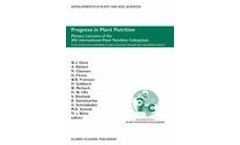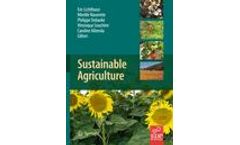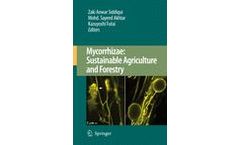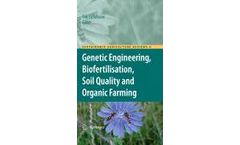Refine by
biofertilizers books
10 books found
Biofertilizers are important components of integrated nutrient management. ...
Mycorrhiza will be the focus of research and study for the coming decade. Successful survival and maintenance of plant cover is mostly dependent on mycorrhization. During the last decade about ten books have appeared on various aspects of mycorrhiza, including two on methodology. The present book has been compiled to give a complete and comprehensive description of the topic to the students ...
These papers include two lectures which address the role of Plant Nutrition in the sustainability of agro-ecosystems and the production of enough high quality food to feed the growing world population. Recent advances in Plant Nutrition are reviewed in the 11 papers presented in each of the Symposia devoted to: genetics and molecular biology of Plant Nutrition, nutrient functions, the role of the ...
The International Plant Nutrition Colloquium in Hannover was the 14th in a series that started in 1954. Hannover was also selected as the venue of the 7th Colloquium held 27 years ago, in September 1974, under the presidency of J. Wehrmann. This volume is a compilation of extended abstracts of all papers presented at the 14th Colloquium. These papers include two plenary lectures which ...
This book presents a comprehensive scientific overview of the components and processes that underpin the biological characteristics of soil fertility. It demonstrates the interdependence of soil biological fertility with physical and chemical characteristics of soil. The book highlights the enormous diversity of life in soil and the resulting effects that management of land can have on the ...
This book presents a comprehensive scientific overview of the components and processes that underpin the biological characteristics of soil fertility. It demonstrates the interdependence of soil biological fertility with physical and chemical characteristics of soil. The book highlights the enormous diversity of life in soil and the resulting effects that management of land can have on the ...
Food production remains the highest agricultural priority, subject to the constraint that it be done in harmony with nature, or at least with minimum environmental pollution. The amount of fertilizer applied can be controlled using modern application techniques, including soil and crop management, guaranteeing higher economic profit and lower environmental cost. It is in such a context that ...
Sustainability rests on the principle that we must meet the needs of the present without compromising the ability of future generations to meet their own needs. Starving people in poor nations, obesity in rich nations, increasing food prices, on-going climate changes, increasing fuel and transportation costs, flaws of the global market, worldwide pesticide pollution, pest adaptation and ...
Mycorrhizal fungi are microbial engines which improve plant vigor and soil quality. They play a crucial role in plant nutrient uptake, water relations, ecosystem establishment, plant diversity, and the productivity of plants. Scientific research involves multidisciplinary approaches to understand the adaptation of mycorrhizae to the rhizosphere, mechanism of root colonization, effect on plant ...
Sustainable agriculture is a rapidly growing field aiming at producing food and energy in a sustainable way for humans and their children. Sustainable agriculture is a discipline that addresses current issues such as climate change, increasing food and fuel prices, poor-nation starvation, rich-nation obesity, water pollution, soil erosion, fertility loss, pest control, and biodiversity depletion. ...







